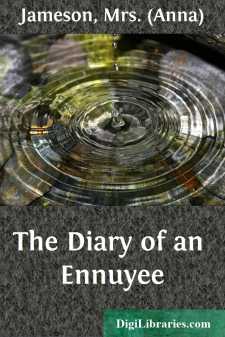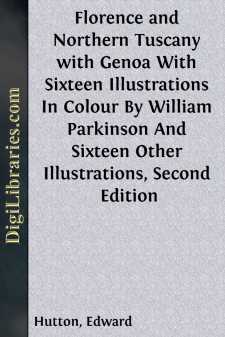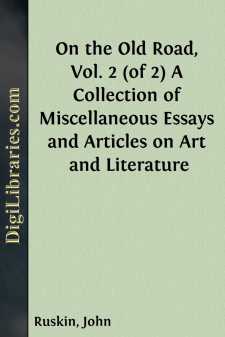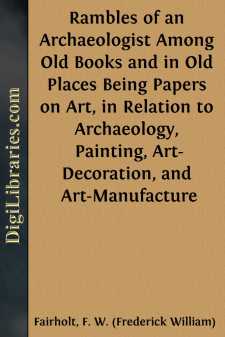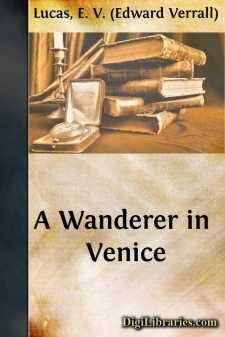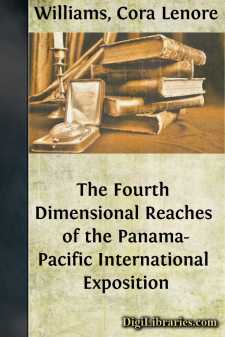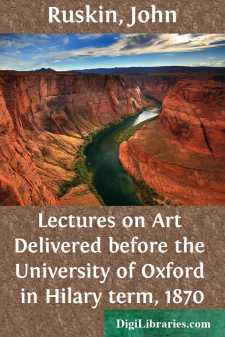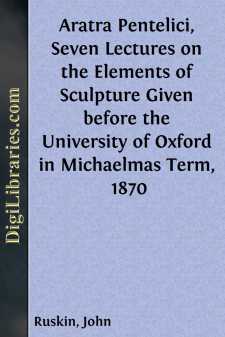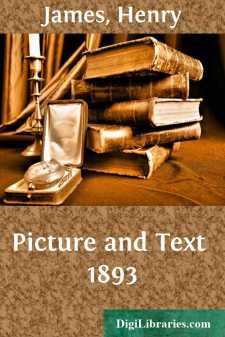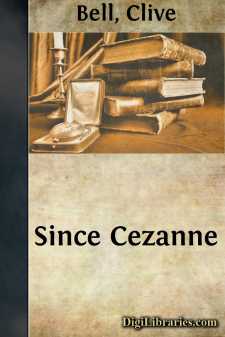Art
- African 1
- Asian 2
- Collecting 1
- Collections, Catalogs, Exhibitions 6
- Criticism 2
- European 8
- General 14
- History 11
- Middle Eastern 1
- Sculpture 4
Art Books
Sort by:
DIARY OF AN ENNUYÉE. Calais, June 21.—What young lady, travelling for the first time on the Continent, does not write a "Diary?" No sooner have we slept on the shores of France—no sooner are we seated in the gay salon at Dessin's, than we call, like Biddy Fudge, for "French pens and French ink," and forth steps from its case the morocco-bound diary, regularly ruled and paged,...
more...
by:
Edward Hutton
I. GENOA I The traveller who on his way to Italy passes along the Riviera di Ponente, through Marseilles, Nice, and Mentone to Ventimiglia, or crossing the Alps touches Italian soil, though scarcely Italy indeed, at Turin, on coming to Genoa finds himself really at last in the South, the true South, of which Genoa la Superba is the gate, her narrow streets, the various life of her port, her picturesque...
more...
by:
John Ruskin
THE NATIONAL GALLERY SITE COMMISSION. Evidence of John Ruskin, Monday, April 6, 1857. 114. Chairman. Has your attention been turned to the desirableness of uniting sculpture with painting under the same roof?—Yes. What is your opinion on the subject?—I think it almost essential that they should be united, if a National Gallery is to be of service in teaching the course of art. Sculpture of all...
more...
CHAPTER I. Long after the extinction of the practical art-power evolved from the master-minds of Greece and Rome, though rudely shattered by the northern tribes, it failed not to enforce from them an admission of its grandeur. Loving, as all rude nations do, so much of art as goes to the adornment of life, they also felt that there was a still higher aim in the enlarged spirit of classic invention. It...
more...
CHAPTER I THE BRIDE OF THE ADRIATIC The best approach to Venice—Chioggia—A first view—Another water approach—Padua and Fusina—The railway station—A complete transformation—A Venetian guide-book—A city of a dream. I have no doubt whatever that, if the diversion can be arranged, the perfect way for the railway traveller to approach Venice for the first time is from Chioggia, in the...
more...
A Fourteenth Century Legend Friar Bacon, reading one day of the many conquests of England, bethought himself how he might keep it hereafter from the like conquests and so make himself famous to all posterity. This (after great study) he found could be no way so well done as one; which was to make a head of brass, and if he could make this head to speak (and hear it when it spoke) then might he be able...
more...
by:
John Ruskin
PREFACE TO THE EDITION OF 1887. The following lectures were the most important piece of my literary work done with unabated power, best motive, and happiest concurrence of circumstance. They were written and delivered while my mother yet lived, and had vividest sympathy in all I was attempting;—while also my friends put unbroken trust in me, and the course of study I had followed seemed to fit me for...
more...
by:
John Ruskin
PREFACE. 1. I must pray the readers of the following Lectures to remember that the duty at present laid on me at Oxford is of an exceptionally complex character. Directly, it is to awaken the interest of my pupils in a study which they have hitherto found unattractive, and imagined to be useless; but more imperatively, it is to define the principles by which the study itself should be guided; and to...
more...
by:
Henry James
BLACK AND WHITE If there be nothing new under the sun there are some things a good deal less old than others. The illustration of books, and even more of magazines, may be said to have been born in our time, so far as variety and abundance are the signs of it; or born, at any rate, the comprehensive, ingenious, sympathetic spirit in which we conceive and practise it. If the centuries are ever arraigned...
more...
by:
Clive Bell
SINCE CÉZANNE With anyone who concludes that this preliminary essay is merely to justify the rather appetizing title of my book I shall be at no pains to quarrel. If privately I think it does more, publicly I shall not avow it. Historically and critically, I admit, the thing is as slight as a sketch contained in five-and-thirty pages must be, and certainly it adds nothing to what I have said, in the...
more...


